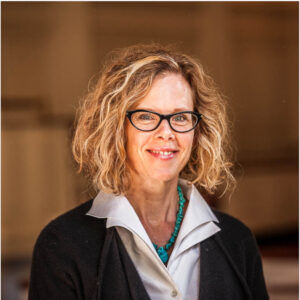
Reflections on the Purpose of Theological Education – Part II
In my last blog on this site (the first of three parts) I reflected on what difference it could make if theological education institutions focused on formation of students rather than imparting information to them. That blog generated some interesting comments, questions, and feedback, so I thought I might dig a little further here.
In my seasoning as a scholar and a teacher it has become clear that my focus is not on the students in my institution per se. It is not even on the material I want them to learn. As a pastoral theologian, I focus on the suffering in the world, and God’s longing for the wholeness and the flourishing of all that can only happen through justice, reconciliation, and the labor of peace. I think about my students concluding their time with us at Brite Divinity School and facing anew the world and all the impediments to the flourishing of God’s world. I want to empower them to see what those impediments are, to name them and call them out. I want them to leave Brite with the capacities to envision new possibilities, excite others about those possibilities, and get others involved. I want them to move forward with the knowledge and the tools to offer healing care, to lament and attend to suffering, both personal and systemic, to create genuine community. I want them to have grown and changed personally and to have become better integrated during their time with us. I want each of our students to have the chance to become more whole themselves as they prepare to contribute to the healing and wholeness of others and of communities, no matter where their lives take them. It became clear to me many years ago that no amount of reading Sigmund Freud (or his daughter Anna), no amount of systems theory, or object relations theory, or even narrative theory could accomplish these goals for them. Saying this does not negate the importance of those theories (and my syllabi continue to show my firm commitment to the idea of reading as fundamental to learning). But it does shift how I understand my work. I now ask myself how any course I teach will help students understand what wholeness can look like, what flourishing might taste like. I hope each course will help them understand better how to affect that, both for themselves and for others.
Perry Shaw argues in Transforming Theological Education: A Practical Handbook for Integrative Learning that good teaching invites students into deep learning (Carlisle: Langham, 2014). Deep learning, as Shaw defines it, is the learning that continues to affect people 5, 10, or more years beyond the classroom. Deep learning creates space for students to wrestle with the implications of Freud or Heinz Kohut for the world they are facing themselves and the world others are facing. Deep learning teaches students how to connect ideas with lives, practices with change, and gives direction to hope. Deep learning shapes the way students think, how they feel, act, reflect, and engage, more than it relates to what they know. Deep learning changes the way people live and move in the world. It dares to help people figure out what it means to participate in the life of God in the world, to discern what God-as-life-force is doing already, and to magnify that.
This is a shift, Shaw asserts, from education-as-teaching to education-as-learning, -changing, and -growing. This kind of education asks less what we are teaching and more what students are taking with them. It teaches them how to assess what is valuable and what is “fake news” in a world inundated by “information.” It helps them sift through the noise to what is most important and meaningful, especially from a theological perspective. This kind of education-as-formation will still require some foundational knowledge, but less of that and more of the work of applying that knowledge to the challenges people and communities are facing. Formation focused education invites much more wrestling, struggling, and deepening than education-as-teaching might. Education-as-formation helps students understand how content relates to and can perhaps be used to change the worlds that they are in. It is funded by the conviction that the God of Life longs for the flourishing of all that is, and that our calling as theological educators is to figure out how to respond to that longing and to do the hard work of living into flourishing; understanding its impediments in ourselves, in others, and in our world; and developing practices (including teaching practices) that nurture flourishing.
Deep learning, then, requires that we educators join students where they are and encourage them forward a step or two and much deeper than learning for information does. It invites us to listen to them and the challenges they and their communities are facing. It requires that we faculty get out of our heads on occasion and into our own hearts and souls. It means that we ourselves must be willing to enter ongoing processes of growth and formation, too, as we seek to live more fully into our own wholeness and lean harder into our own flourishing. Deep learning happens best in the context of institutions that understand their role in teaching the formation of effective community, where staff and faculty model growth and integration, and where students can experience a taste of what each of us ultimately seeks.
i hope everything will be good in the end